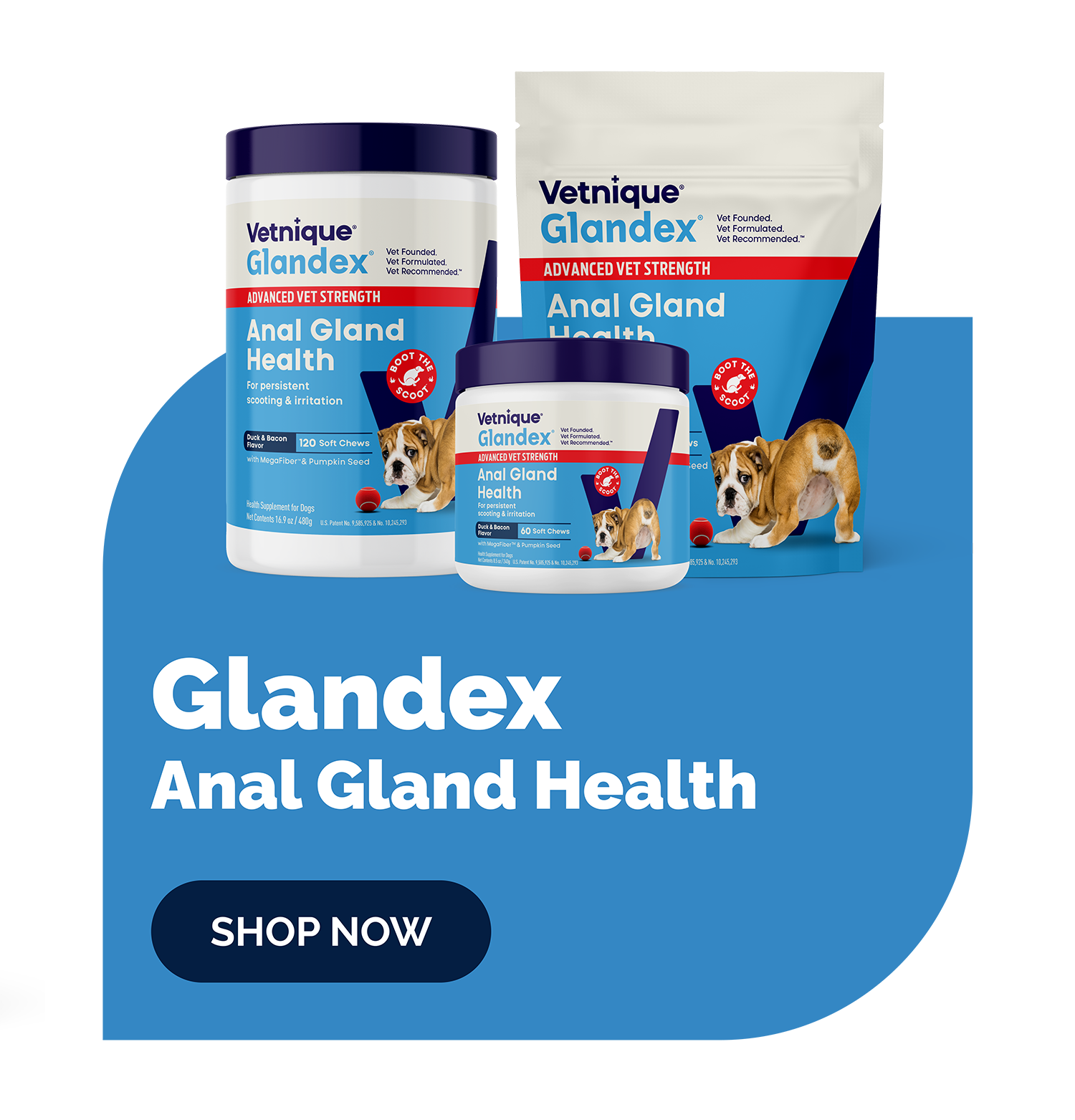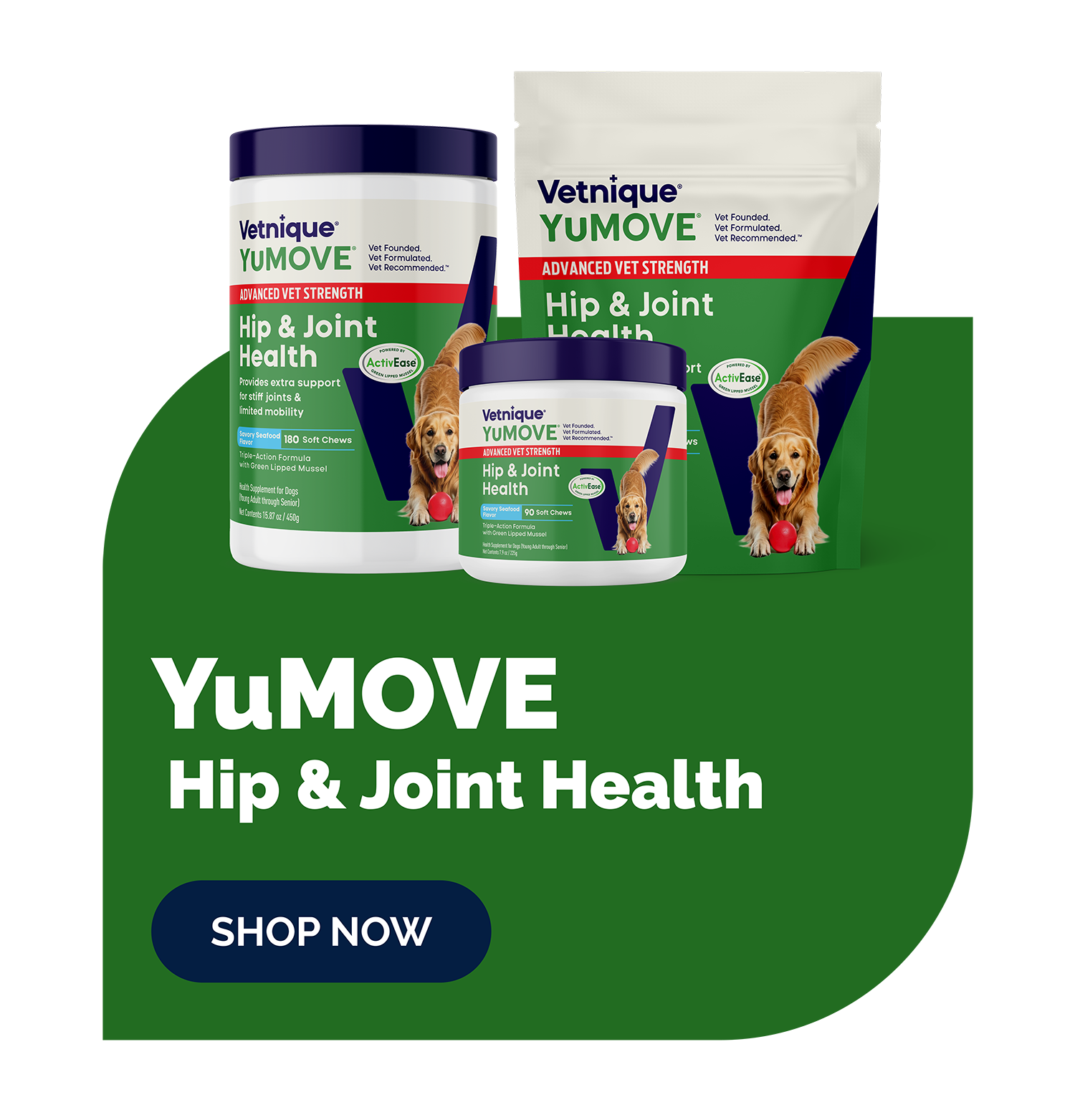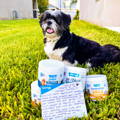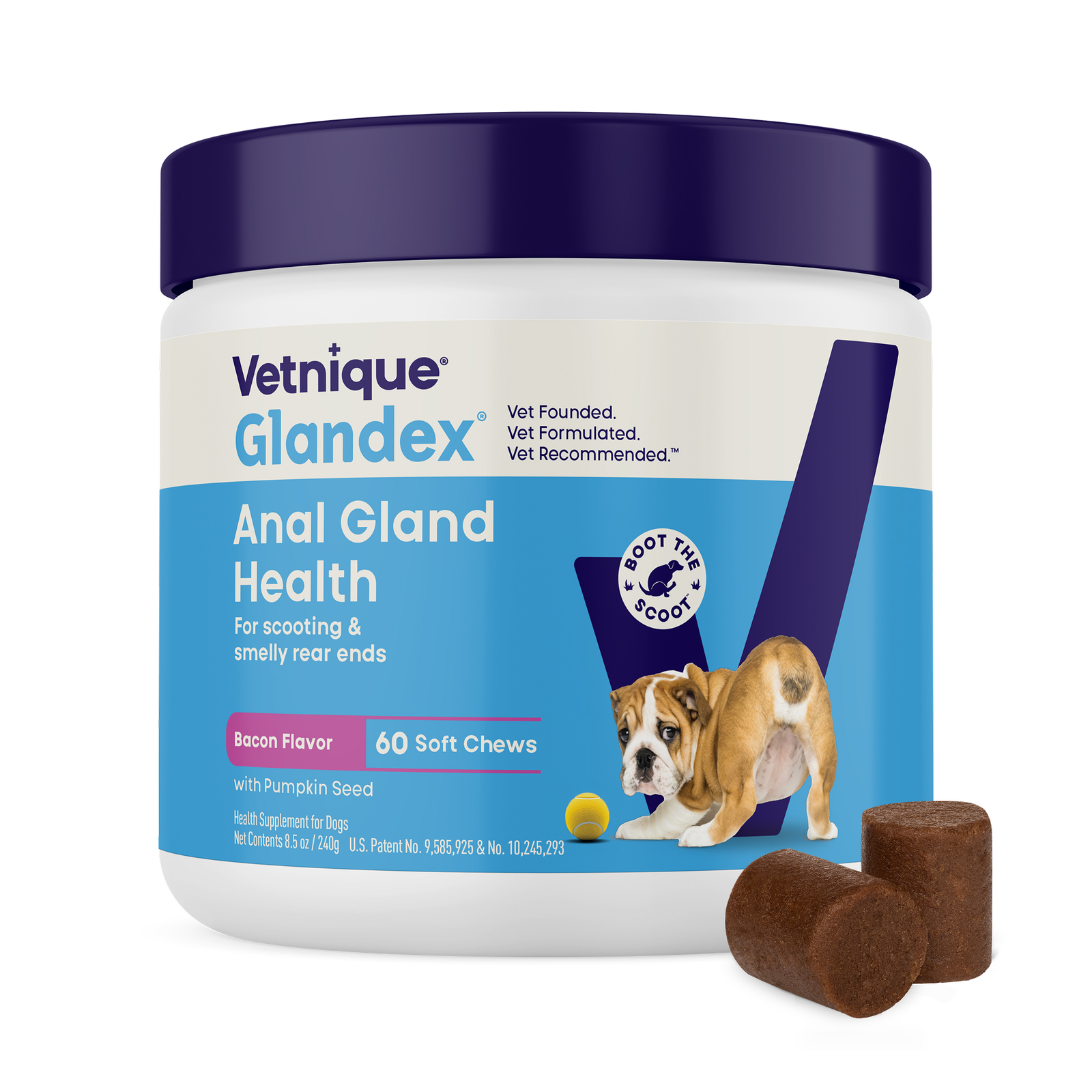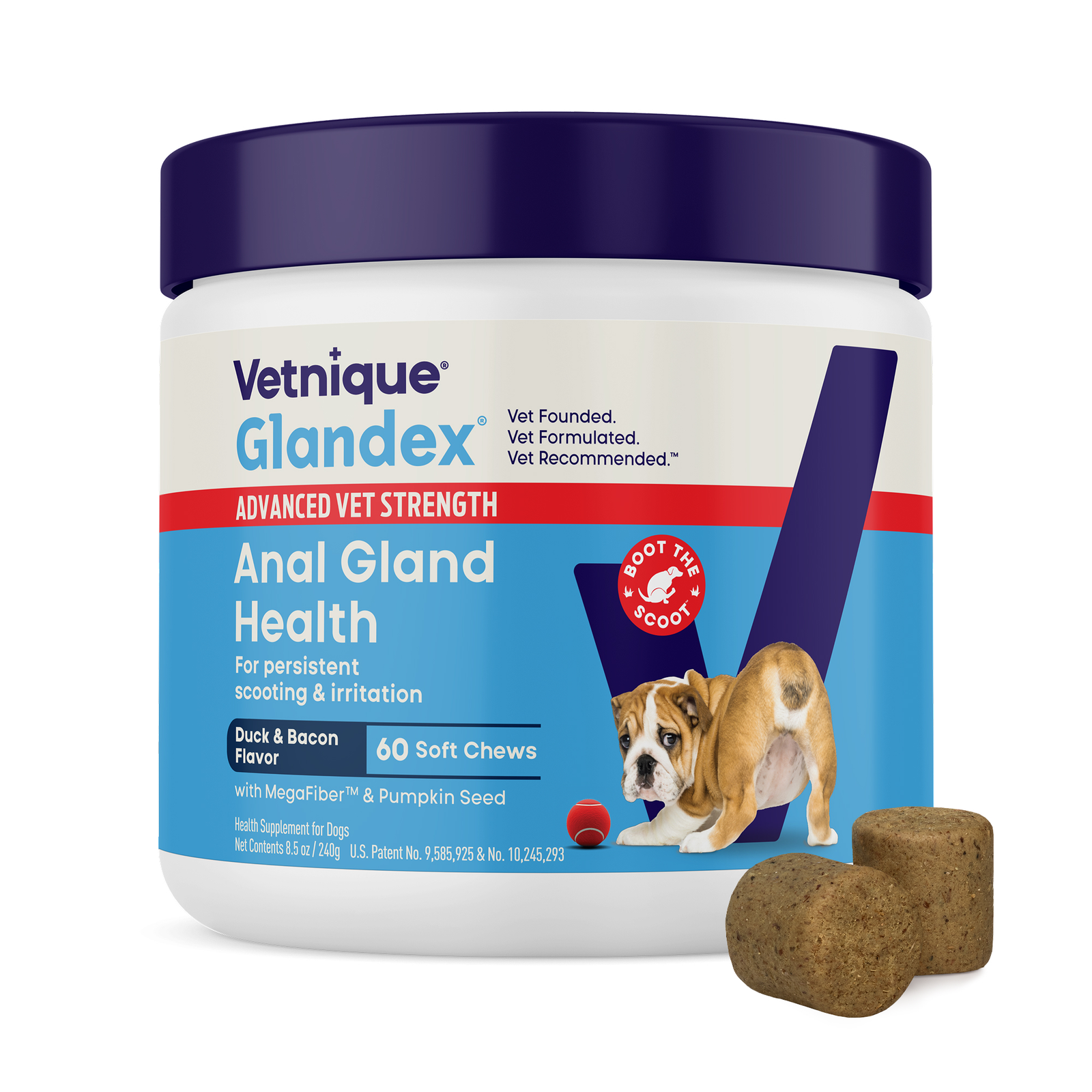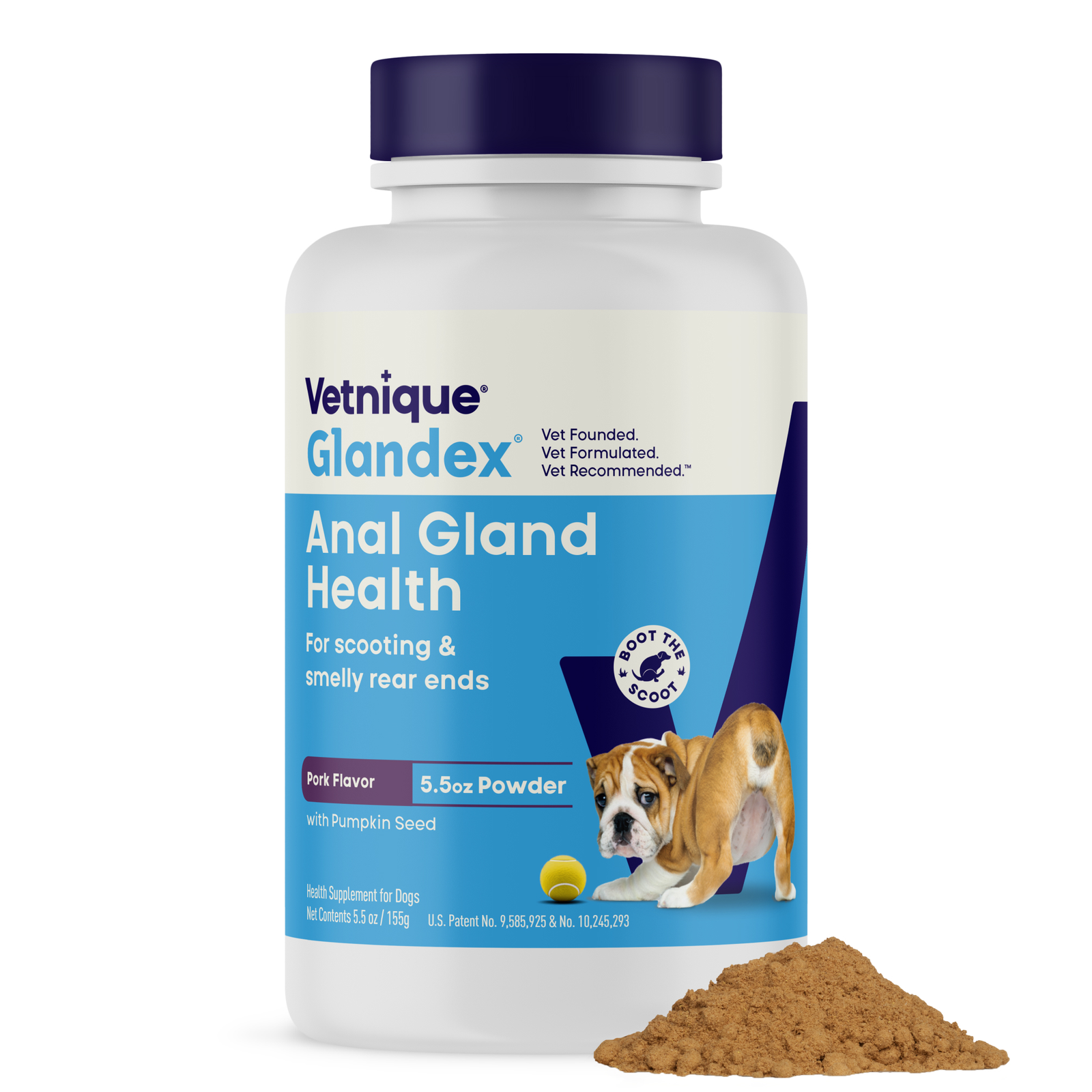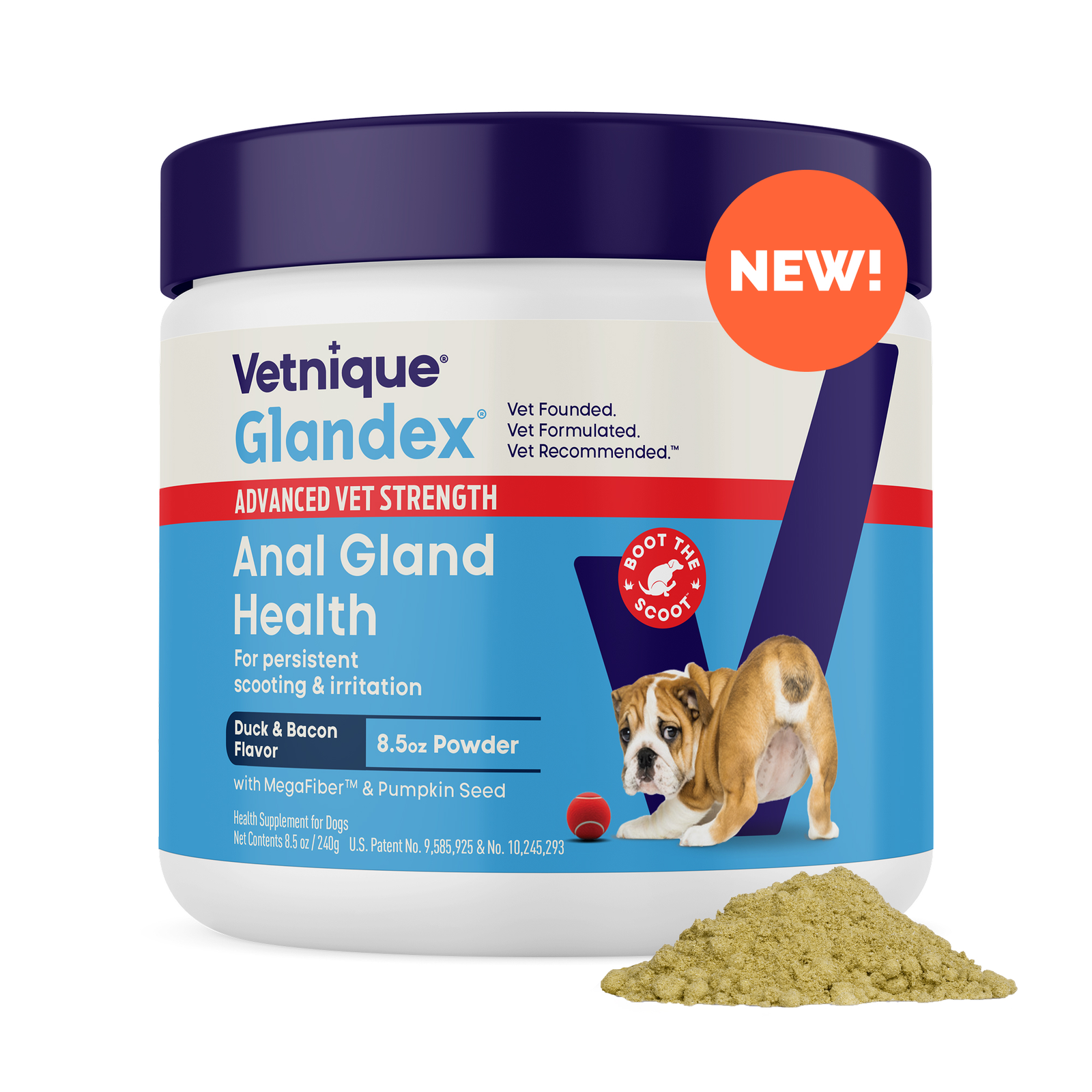Digestive Distress In Dogs: 6 Signs That Your Dog Needs Probiotics
Vet Verified
WRITTEN BY DR. HILLARY WOLFE

Gut health is a hot topic—and for good reason. It’s important for digestion, immune system support, and so much more. We all need a balanced gut. Dogs do, too! Taking care of your dog’s gut health means going back to the basics: providing good nutrition and regular exercise.
Humans and pets alike can benefit from an extra boost, especially when symptoms like an upset tummy strike. That’s where probiotics may come into play. Let’s explore some signs that your dog needs probiotics, what they are, and how they can help!
What are probiotics for dogs?
Bacteria can get a bad rap. Not all of it is the enemy. A healthy balance of “good” and “bad” bacteria is essential for your dog's gut microbiome, ensuring their digestive system functions properly.
Probiotics are, essentially, good bacteria that may benefit your dog’s gut health. While some dogs may consume probiotics naturally through foods like yogurt, bone broth, and fermented vegetables, they may not always be eager to eat these options. In such cases, supplements can be a great alternative. Probiotic supplements deliver a dose of live beneficial bacteria or yeast, helping to restore balance in the gut microbiome and promote optimal digestion.
Just like supplements for humans, your dog can consume probiotics in powder, capsule, soft chew, or liquid form. You’ll want to choose one specifically formulated for dogs and with bacteria strains that have been shown to benefit canine health, in addition to prebiotics–a type of dietary fiber that feeds the probiotics.
6 signs your dog needs probiotics
Do dogs need probiotics? Yes, many dogs can benefit from probiotics. But you wouldn’t be alone if you found yourself asking, “Does my dog need probiotics?” To answer that question, you’ll want to check for a few tell-tale signs. Make a note of what you have observed and when to identify any patterns. As a veterinarian, I always find it helpful when a client comes to me with notes—it helps me determine the best course of treatment for their pet.
Keep an eye open for these indications that probiotics might be needed!
1. Your Dog Has Diarrhea
Several things can cause diarrhea in dogs. The number one is diet change, especially if it’s abrupt. Have you switched dog foods? Provided water from an unusual source? Has your dog lapped up something they shouldn’t, like garbage or table scraps? These can all disrupt the gut. Antibiotic use or underlying infections can also trigger diarrhea. Since one main job of probiotics is restoring a healthy gut and supporting digestion, they can be a good first line of defense for diarrhea.
2. Irregular Potty Schedule
Speaking of tummy trouble, you might notice that your dog is relieving themselves more or less frequently. Probiotics may help regulate their potty habits by addressing underlying issues, such as improving digestion, supporting the gut lining, adjusting to diet changes, and even managing stressful situations.
3. Stomach Discomfort or Bad Gas
A dog with stomach discomfort or excess gas likely needs to rebalance their gut microbes so that they can break down food more effectively and absorb nutrients without feeling discomfort. Some probiotic strains have anti-inflammatory properties that may help soothe the gut lining.
4. Suffering from Allergies
Like their human companions, dogs can feel the effects of allergies. Allergy symptoms can range from watery eyes and sneezing to itchy skin and stomach upset. These uncomfortable symptoms are all part of the immune response. Probiotics play a big part in influencing the immune response since science suggests 70-90% of the immune system lives in the gut. We’ll get to know more about that later!
Improving gut health may help lower inflammatory responses that contribute to uncomfortable allergy symptoms. Additionally, evidence suggests that a healthy gut can positively impact skin health, reducing itchiness and irritation!
5. Weight Loss or Weight Fluctuation
That bowl of food you put down for your dog to munch on? It’s needed for nutrients––but nutrients are best absorbed when a dog’s digestive system is in top form. If you see your dog losing weight, or seeing their weight boomerang, it could point back to the gut. Probiotics may influence metabolism and fat storage, helping to regulate the metabolic processes.
6. Poor Overall Digestive Health
Probiotics can improve nutrient absorption, making them a beneficial supplement for many dogs. In addition to promoting effective digestion, probiotics can help dogs maintain regular bowel movements, which is crucial to digestive health.

How to give your dog probiotics
Probiotics for dogs are tailored to their unique digestive systems. It probably goes without saying, but don’t serve them any from your “human” stash.
You have a few formulations for dogs to consider:
- Powder: Usually sprinkled on your dog’s food. Follow the dosage instructions on the package or your vet’s advice.
- Soft chews: These can be given as treats and might be more appealing to some dogs.
- Capsules/Tablets: These can be hidden in a treat or mixed into their food. If your dog is picky, you can use a pill pocket or a bit of peanut butter to help them take it.
- Liquid: Sometimes added directly to their water or food.
You also need to consider the strain of bacteria. Some provide little to no benefit to pets, while others may even be pathogenic strains. Always select a probiotic that includes the NASC seal on the package, and ask your veterinarian which strain is best for your pet’s needs.
When it comes to giving probiotics to your dog, slow and steady wins the race. Start with a small amount to see how your dog reacts, and then increase to the recommended dosage. Introducing probiotics into the diet can result in gas or potentially stomach upset, so watch for these signs and let your vet know if you notice anything unusual. Most importantly, follow the dosing schedule—and stick with it. Probiotics generally need to be given continuously to maintain their benefits, as they do not permanently colonize the gut.
In conclusion, supporting your dog’s gut health with probiotics can lead to potential improvements in digestion, immune function, metabolism, and overall well-being. It's essential to keep in mind that not all probiotics are created equal, and selecting the right type for your dog is crucial. Consulting with your veterinarian can help you determine the most appropriate probiotic supplement for your dog’s specific needs. Regular monitoring of your dog’s health, along with the right guidance, can help you make informed choices that may enhance their quality of life.
